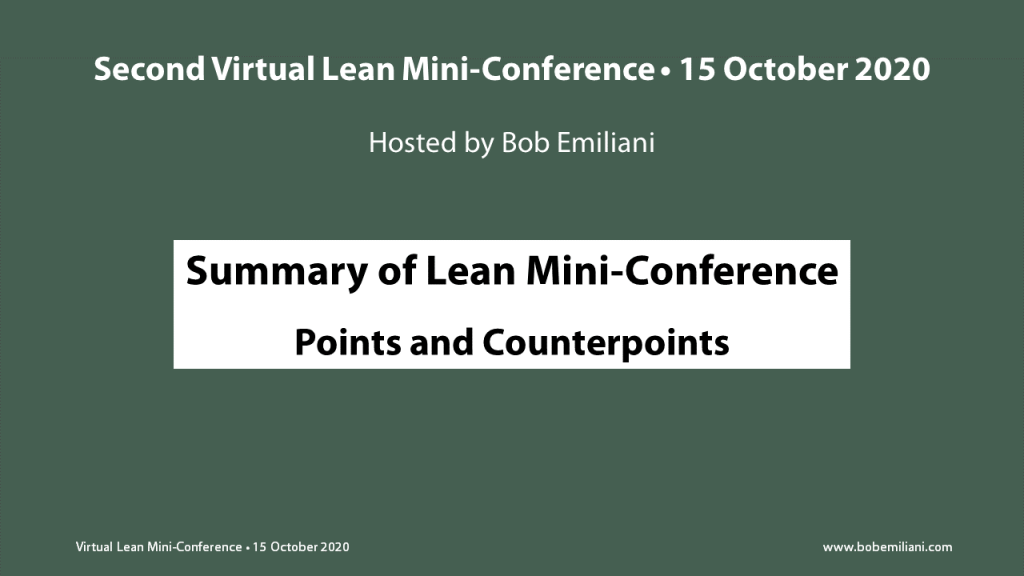Today I hosted the Second Virtual Lean Mini-Conference via Zoom — a forum for freethinking (click here to view the results from the First VLMC). We again had a fantastic conference with the diverse views that one would hope to get from global participation.
To reiterate. a primary objective of these conferences is to challenge the status quo on how virtual conferences are conducted. Specifically, a free conference, one that is open to a smaller group of participants (“rightsized”) who are engaged in substantive intellectual inquiry versus the usual expensive and dull conference where the same Lean celebrities yet again speak to a passive audience of attendees.
Purpose of Virtual Lean Mini-Conferences is:
- Focused exploration of ideas
- Challenge our thinking
- Raise the level of intellectual discourse
- Step outside the Lean groupthink bubble
- Learn from each other
- Develop self
We explored just two provocative questions:
- Is Lean transformation still relevant? YES! or NO!
- Do you really need a Lean coach? YES! or NO!
The VLMC is designed to be more inclusive and topically relevant, where participants are the speaker/presenters, rather than participants merely listening to what a few presenters have to say. Prior to the mini-conference, participants are split into two groups. Each group is assigned a question and asked to develop fact-based arguments before the conference, as a team or individually. In a nutshell, the method used is: Argument • Counterargument • Discussion • Learning.
Click on the image below to view the summary of the Second Virtual Lean Mini-Conference. I invite you to share your comments.

The Third Virtual Lean Mini-Conference (always free) will be on 6 November (limited to 30 people) with a different pair of provocative questions. Details to follow.
Longer-term, I hope that others, at the grass-roots level, pick up on this simple (and free) model to achieve the six items of Purpose shown above. It can develop a global camaraderie of ground-level Lean practitioners (vs. the coterie of Lean celebrities) that I believe has been missing in our dedicated efforts to advance Lean management. In addition, it expands the diversity of views and helps us understand where we are and where we are going with Lean management. Hopefully, such interactions will also help guide us towards a future that includes greater acceptance of Lean management by the leaders of organizations. All we are trying to do is make work easier for them, right?
